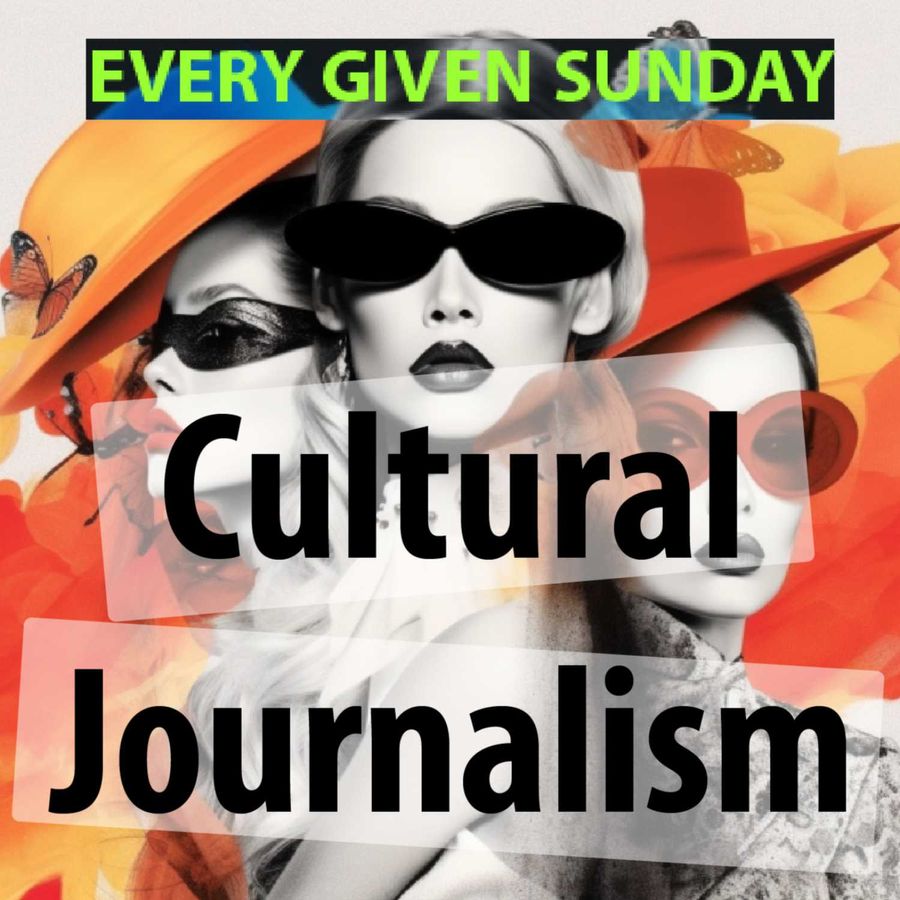The Cultural Journalism Conundrum: An Intellectual Odyssey
In this era of clickbait and superficial analysis, where cultural journalism is often reduced to vacuous gossip and empty sensationalism, it is imperative to engage critically with the state of the craft. The season finale of this discourse beckons, inviting us to reflect upon the abysmal state of cultural journalism and explore its historical underpinnings.
The Cult of Celebrity:
Central to the woes of contemporary cultural journalism is the continued veneration of celebrity. The unholy marriage of fame and consumerism has birthed a culture where trivialities overshadow substance. The insatiable appetite for gossip and the obsession with the personal lives of public figures have hijacked the noble purpose of cultural journalism. Rather than dissecting and interpreting the ideas and creations of these figures, we find ourselves mired in a sea of tabloid headlines and paparazzi shots.
Historically, elevating celebrities to near-deity status is not a new phenomenon. In ancient Rome, the cult of personality surrounding emperors and gladiators diverted attention from societal ills. Similarly, during the Renaissance, the fascination with monarchs and artists eclipsed the time's revolutionary ideas and intellectual pursuits. Today, the Kardashianization of cultural journalism perpetuates a cycle of academic regression, discouraging the exploration of meaningful ideas and reinforcing the banality of the status quo.

The Death of Criticism:
Another grave concern in cultural journalism is the erosion of genuine criticism. In an era of hyperbole and empty praise, dissenting voices are stifled, and critical analysis is deemed antagonistic. Moreover, the fear of alienating advertisers and jeopardizing access to celebrity exclusives has led to a lack of genuine critique.
Contrary to the current state of affairs, history provides us with towering figures who upheld the principles of rigorous criticism. From George Bernard Shaw to Susan Sontag, these intellectual stalwarts dared to challenge the status quo, dissecting artistic and cultural works with surgical precision. Their sharp wit and unapologetic pursuit of truth emboldened audiences and artists, fostering a culture of intellectual rigour. We must rekindle this spirit of fearless critique if cultural journalism is to rise from its present predicament.
The Digital Deluge:
No discussion on the state of cultural journalism would be complete without addressing the digital revolution's impact. The proliferation of online platforms has democratized the dissemination of information, providing a vast sea of voices. Unfortunately, however, this democratization has also bred a culture of noise, where the pursuit of clicks and likes supersedes substance.
We must recognize that not all voices are equal in their intellectual rigour and expertise. The democratization of information should not equate to the democratization of credibility. Just as Hitchens demanded academic rigour and erudition, we, too, must challenge the cacophony of online platforms, seeking out and amplifying the voices that adhere to higher standards of analysis and critical thinking. The digital realm presents an opportunity to break free from the shackles of mediocrity, but it demands discernment and an unwavering commitment to intellectual honesty.
The Way Forward:
We need a renaissance of intellectual curiosity to rescue cultural journalism from its current nadir. The pursuit of celebrity gossip must give way to the exploration of ideas and the celebration of genuine artistic achievements. We need journalists and critics who possess the courage to challenge conventions and the audacity to navigate complex subjects with erudition.
Planksip, as a philosophy media outlet that aims to redefine the consumption of intellectual content, has a pivotal role in this transformation. By elevating the calibre of discourse, rejecting sensationalism, and valuing academic rigour, Planksip can act as a beacon of intellectual enlightenment, leading the charge toward new cultural journalism.
Conclusion:
The veneration of celebrities, the death of criticism, and the digital deluge are the dilemmas we must confront head-on. Yet, we can breathe life back into cultural journalism by rediscovering the audacity of genuine critique, discerning amidst the noise, and nurturing a culture of intellectual curiosity; only then can we hope to escape the clutches of banality and embark on a path that enriches our collective understanding of art, ideas, and the human condition.


